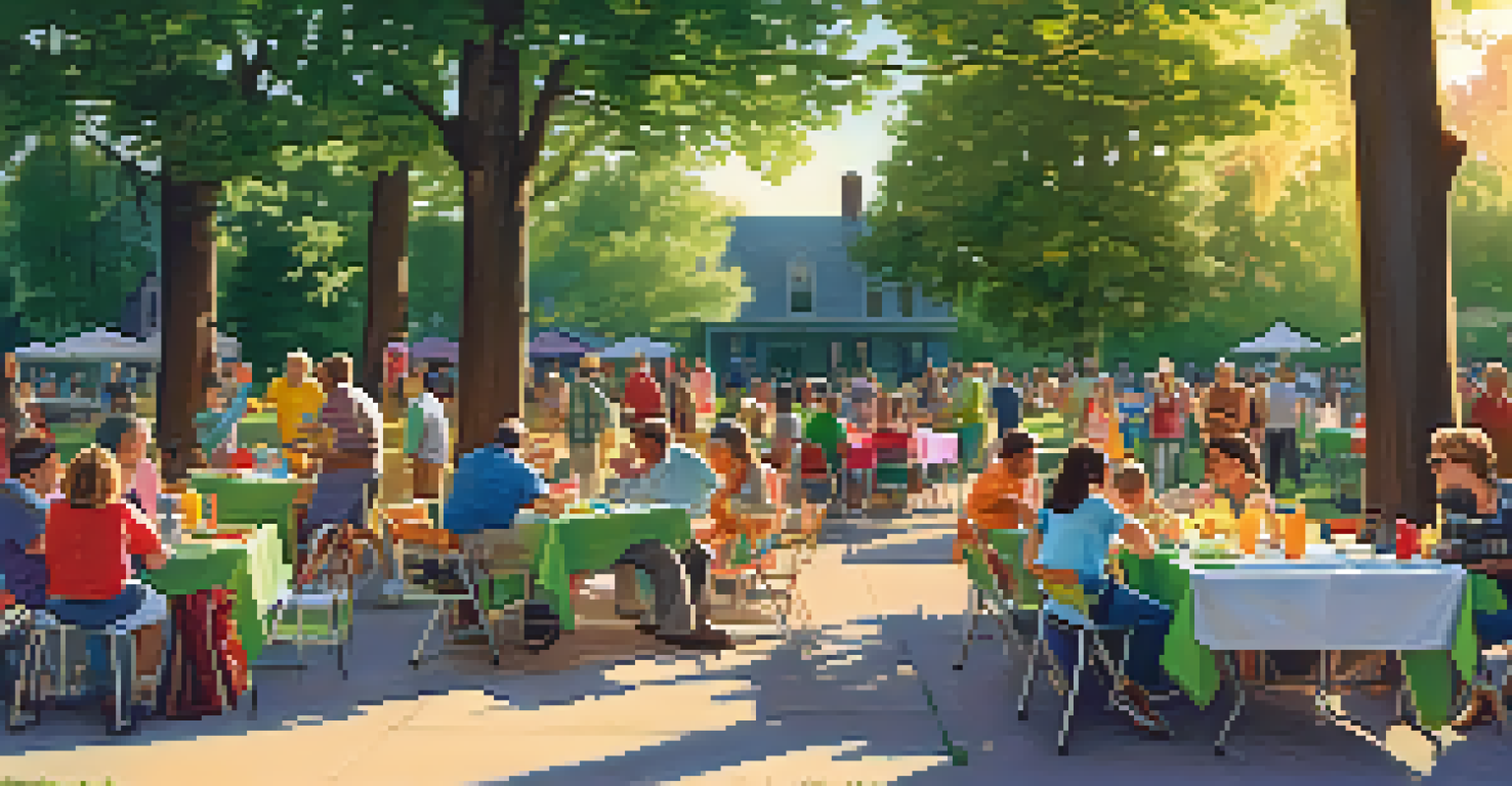Understanding the Structure of Homeowners Associations

What is a Homeowners Association (HOA)?
A Homeowners Association, or HOA, is an organization in a residential community that enforces certain rules and regulations. These associations are typically formed in subdivisions, condominiums, or planned communities to manage common areas and maintain property values. Members of the HOA are usually property owners within the community, and by purchasing a home, they agree to abide by the HOA's rules.
A community is like a ship; everyone ought to be prepared to take the helm.
HOAs can vary in structure and governance, but their primary goal is to create a pleasant living environment for all residents. They often handle everything from landscaping and maintenance of shared spaces to community events and security. This means that while you might have more freedom in your own home, there are certain standards you must follow to maintain the community's overall aesthetic.
Understanding your HOA's purpose can help you navigate community living more effectively. For example, if you're considering a home in a community with an HOA, it's essential to review the association's bylaws, which outline the rules and regulations you'll need to follow.
The Governance Structure of HOAs
Most HOAs are governed by a board of directors, which is typically made up of volunteer homeowners from the community. This board is responsible for making decisions on behalf of the association, managing finances, and enforcing the community's rules. Board members usually serve for set terms and can be re-elected, giving residents an opportunity to influence how their community is managed.

The board holds regular meetings where residents can voice concerns and discuss community issues. These meetings are essential for transparency and accountability, allowing homeowners to understand how decisions are made. It's not uncommon for an HOA to have various committees, such as those focused on landscaping, finance, or social activities, to help manage more specific tasks.
HOAs Enforce Community Rules
Homeowners Associations establish rules to maintain property values and ensure a pleasant living environment for residents.
Being involved in your HOA can lead to a stronger sense of community. For instance, attending meetings and volunteering for committees can help you connect with your neighbors and contribute to making decisions that impact your living environment.
The Role of Bylaws in HOAs
Bylaws are the governing documents that outline the structure and operational guidelines of an HOA. These documents cover everything from the election process for board members to the rules regarding property modifications by homeowners. Essentially, the bylaws act as the 'constitution' for the association, ensuring that everyone is on the same page regarding community governance.
Good fences make good neighbors.
It's crucial for homeowners to read and understand the bylaws before they purchase a property within an HOA. These rules can significantly affect how you use your home, including restrictions on exterior changes, parking regulations, and pet ownership. Being unaware of these rules can lead to misunderstandings and potential conflicts with the HOA.
Moreover, bylaws can change over time, so it's important to stay informed about any amendments. Regularly reviewing the bylaws allows homeowners to remain compliant and advocate for changes that may benefit the community.
Common Responsibilities of HOAs
HOAs typically handle a variety of responsibilities that contribute to the overall well-being of the community. These might include maintaining common areas such as parks, pools, and walking trails, which are essential for enhancing the community's appeal and property values. Additionally, they may manage landscaping and snow removal, ensuring that shared spaces remain safe and attractive throughout the year.
Another key responsibility of an HOA is enforcing community rules and regulations. This can include monitoring landscaping standards, enforcing noise restrictions, and addressing violations. While some homeowners may see these rules as restrictive, they are often in place to maintain a level of uniformity and quality that benefits everyone in the neighborhood.
Active Involvement Strengthens Community
Participating in HOA meetings and committees fosters connections among neighbors and allows residents to influence community decisions.
Finally, many HOAs organize community events and activities that foster neighborly connections. From holiday gatherings to summer barbecues, these events create a sense of belonging and enhance the overall living experience.
Understanding HOA Fees and Assessments
Every HOA collects dues from its members, known as HOA fees, to cover the costs of community maintenance and services. These fees can vary widely depending on the amenities provided and the size of the community. Homeowners should be aware of these fees when considering a property in an HOA, as they can impact your overall budget.
In addition to regular dues, an HOA may impose special assessments for unexpected expenses or major projects, such as roof repairs or community upgrades. Homeowners are usually notified in advance about these assessments, but they can be a significant financial burden if not anticipated. Understanding the financial structure of your HOA can help you plan for these potential costs.
It's also important to review the HOA's financial statements and budget during your home purchase process. This information can provide insight into the association's financial health and help you gauge whether you’ll be facing any sudden fee increases in the future.
Conflict Resolution in HOAs
Conflicts can arise between homeowners and the HOA for various reasons, such as rule violations or differing opinions on community management. When disagreements occur, it's important to address them constructively. Many HOAs have established procedures for conflict resolution, often starting with a discussion between the involved parties.
If a resolution cannot be reached, homeowners may have the option to appeal to the board of directors. This process usually involves submitting a written request for review. The board will then assess the situation and make a decision based on the community's bylaws and best interests.
Understanding HOA Fees is Crucial
Homeowners should be aware of HOA fees and potential assessments to effectively manage their overall budget and financial planning.
Staying calm and respectful during conflicts is crucial. Remember, the goal is to find a solution that benefits both the individual homeowner and the community as a whole. Building relationships with board members and fellow residents can also facilitate smoother communication and conflict resolution.
The Benefits of Living in an HOA Community
Living in an HOA community can offer numerous benefits that enhance your overall living experience. One of the primary advantages is the maintenance of shared spaces, which can lead to a more visually appealing environment. This maintenance not only benefits the community but can also positively impact property values, making it a smart investment for homeowners.
Additionally, HOAs often foster a sense of community by organizing events and activities that encourage neighborly interaction. Whether it’s a summer pool party or a community garage sale, these events help residents form connections and create lasting friendships. A close-knit community can lead to a more enjoyable living experience.

Lastly, living in an HOA can provide a level of security and peace of mind. Many associations implement safety measures, such as gated entrances or neighborhood watch programs, contributing to a safer living environment. This sense of security can be particularly appealing for families and retirees alike.